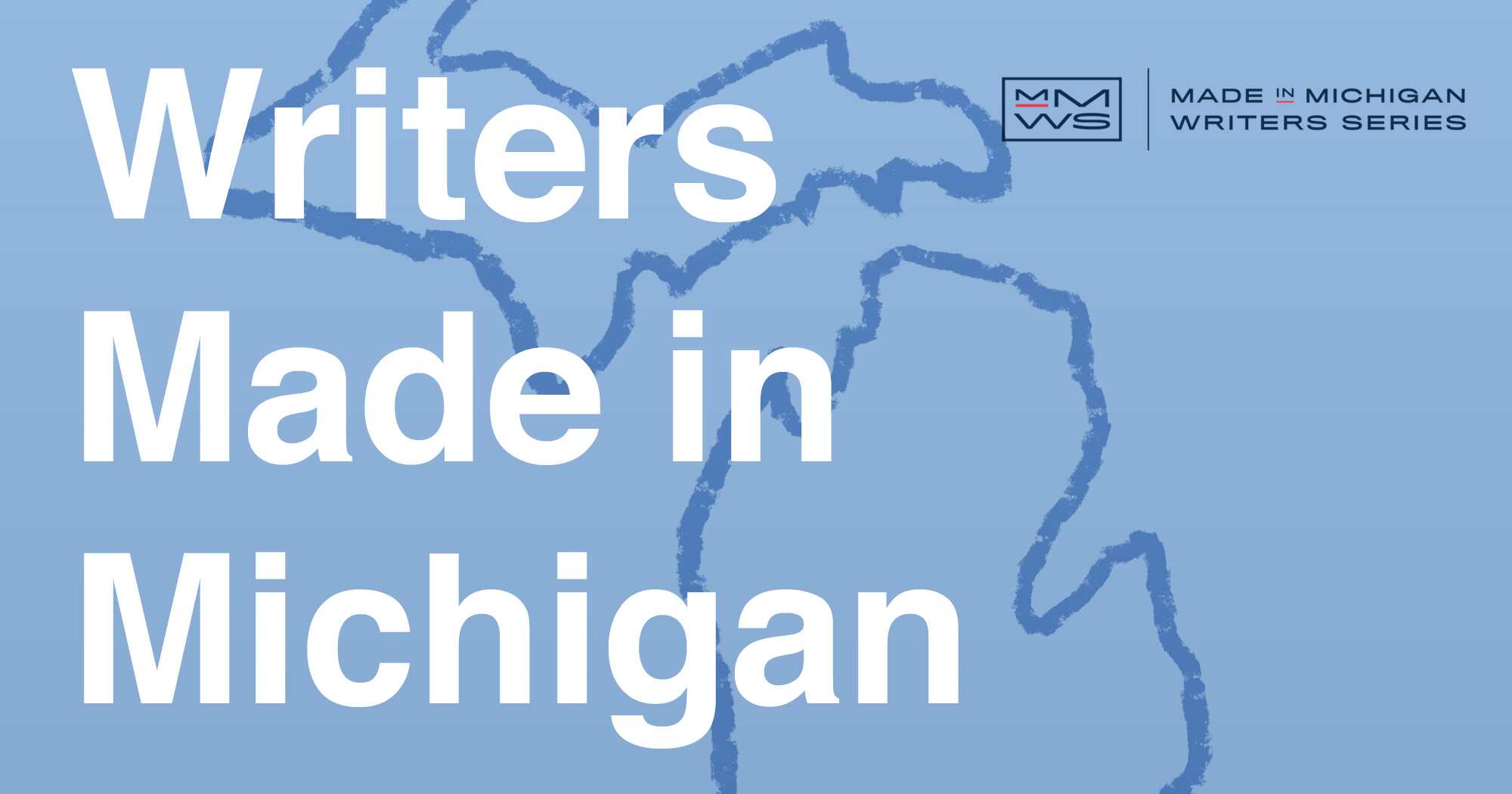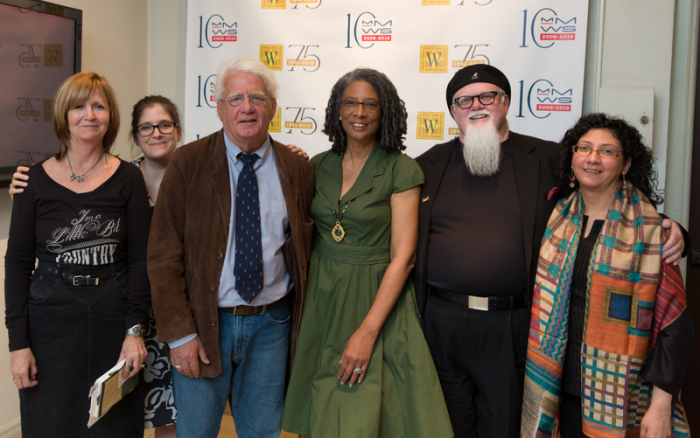Wayne State University Press Celebrates 10 Years of Showcasing Michigan Writers

It has been said that Michigan was first in the recession, and last out. So, by 2006, with the decline of the auto industry already under way, it took a bit of chutzpah for a university press based in one of the most-maligned, grittiest cities in the world to come out with a new literary series of home-grown writers. But that’s what Detroit-based Wayne State University Press did with its Made in Michigan Writers Series.
Ten years later, Michigan is on the rebound and the midsize university press can boast that it’s helped to put the Great Lakes State on the map for a positive reason. The Made in Michigan Writers Series recently celebrated its tenth anniversary, so as the good Michigander I am—Foreword Reviews is based in lovely Traverse City, Michigan—I checked in with Annie Martin, the series’s acquiring editor, to talk about Michigan’s diverse writing ecosystem.
Are there any common elements among specifically Michigan-made authors?
Quality writing, specific perspectives on being human, and a connection in some way to Michigan are the only three common elements I can think of. One of the reasons I think the series works and why I love working with Michigan-made authors is the diversity of voice and style. This state is eclectic by nature; we have a bridge connecting the lower and upper peninsulas, we have a population that includes basically every culture, and varied industries from farming to auto to mining to short run printers, and a socio-economic factor at play that is both scary and interesting … you can’t get much more eclectic than that.
What was the thought behind Made In Michigan? Was it that Michigan (and Detroit specifically) was getting such a bum rap in the media at the time?
The thought behind it was rather simple: We (as in all Michigan publishers and publishers everywhere) were missing a huge opportunity by not exploring the literary voices of Michigan. You’ve got these voices from the two coasts that come in big and strong in the literary community and through the trade publishers. There’s tradition and local color from both Southern and Western authors. And then there’s the rest of us. This is a simplification of course, but at the same time how has the Midwest (specifically Michigan) not somehow cultivated our place in the literary scene?
I can deal with Michigan and Detroit getting a bum rap … we’ve deserved it some of the time (name me a state that doesn’t). However, to have no identity or not have a seat at the table, I found that unacceptable. At the time we started this series, no recognition was truly being given to Midwestern authors and now there are journals, blogs, reviews, magazines dedicated to this region. I’m pleased we helped push that dial forward.
I was a Journalism and English major at Wayne State in the mid-1980s and remember one of the Made In Michigan authors, M. L. Liebler, as already making his mark in the local poetry scene. How influential has he been over the years?
M.L. Liebler is a hustler of the poetry scene (in all the best ways). He’s not only a great poet, but he knows everyone. EVERYONE. And in his mind, poetry is for everyone, literature is for everyone, and he advocates both for the incorporation of and the publishing of local writers. He and Mike Delp, the other series editor, have been vital in keeping their ear to the ground and providing connections to people we should be looking at for the series. The three of us work as a team. Not everyone is excited about every project but we are all excited about the end goal of the series and that is to be a home to Michigan authors.

Made in Michigan Writers include, from left, L. E. Kimball, Annie Martin, Michael Delp, Desiree Cooper, M. L. Liebler, and Zilka Joseph.
Foreword Reviews’ offices are located up here in beautiful Northern Michigan (the base of the mitten’s little finger.) It’s also home to what is probably a high percentage of writers per capita. Any guesses as to why?
Great question. I’ve got lots of guesses, but I’m not sure any are correct. One, I think a place full of natural beauty breeds writers. You look back to the beginning of writing and natural wonder is always being described, explored, and/or reflected upon. Two, Northern Michigan has this underbelly in some ways. We in the lower half know it as a destination for beauty and vacations, but you also have many of the farms, the migrant workers, the working poor, the haves and the have-nots, shipping yards, cities dependent on tourism for livelihood. There is a sense of self-reliance and rugged attitude akin to places in the western part of the U.S. There is a wildness of possibilities. Or three, cold weather, liquor, and a computer is sometimes all one needs to write.
Can you name some upcoming titles in the series you’re excited about?
We just celebrated our ten-year anniversary of the Made in Michigan Writers Series, so it’s been a wild ride. Besides our great crop of writers this year, the series is spreading its wings for 2017. With the wonderful support of the Meijer foundation, we are expanding to publish throughout the year. And increase our publication to between 6-10 books a year. I’m so geeked. Next year, I can tell you that we’ve got three amazing books of poetry coming out by Keith Taylor, Jim Daniels, and Cindy Hunter Morgan. And two new short story collections by Jack Driscoll and Laura Hulthen Thomas. And a couple more in the fall that I can’t yet talk about! A mix of known names and new faces. That’s what I like.
I’m proud to say “neither” when people hear I’m from Michigan and ask whether I prefer MSU or U-M. Do you think Wayne State is on the map at least in literary circles?
I’m the exact same way because usually it’s all about the sports which, to be honest, I don’t follow. I wish that much time, energy, and money was placed into other avenues. But that’s not really the question. I don’t know if it is on the map. Wayne doesn’t have “Michigan” or “Detroit” in its title so there isn’t that immediate recognition. However, I think with writers we are known. I hope so.
Wayne State University Press is as diverse as our state; we aren’t just known for regional literature either. We are a midsize scholarly publisher with a strong track record in Judaica studies, film and media, citizenship, and fairy tales. Here is what I know: our authors and their books are known. I can’t tell you the publisher of most of my favorite books, but I can tell you the title and author’s name. That’s what I care about.
Howard Lovy
